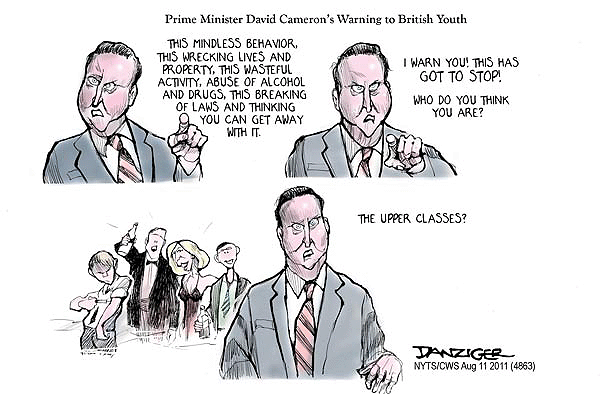This is your morning Open Thread. Pour your favorite beverage and review the past and comment on the future.
Find the past “On This Day in History” here.
August 21 is the 233rd day of the year (234th in leap years) in the Gregorian calendar. There are 132 days remaining until the end of the year.
On this day in 1959, Hawaii became our 50th state. Hawaii is the only U.S. state made up entirely of islands. It occupies most of an archipelago in the central Pacific Ocean, southwest of the continental United States, southeast of Japan, and northeast of Australia.
Hawaii’s natural beauty, warm tropical climate, inviting waters and waves, and active volcanoes make it a popular destination for tourists, surfers, biologists, and volcanologists alike. Due to its mid-Pacific location, Hawaii has many North American and Asian influences along with its own vibrant native culture. Hawaii has over a million permanent residents along with many visitors and U.S. military personnel. Its capital is Honolulu on the island of Oahu.
The state encompasses nearly the entire volcanic Hawaiian Island chain, which comprises hundreds of islands spread over 1,500 miles (2,400 km). At the southeastern end of the archipelago, the eight “main islands” are (from the northwest to southeast) Niihau, Kauai, Oahu, Molokai, Lanai, Kahoolawe, Maui, and Hawaii. The last is by far the largest and is often called “The Big Island” to avoid confusion with the state as a whole. The archipelago is physiographically and ethnologically part of the Polynesian subregion of Oceania.
The first known settlers of the Hawaiian Islands were Polynesian voyagers who arrived sometime in the eighth century. In the early 18th century, American traders came to Hawaii to exploit the islands’ sandalwood, which was much valued in China at the time. In the 1830s, the sugar industry was introduced to Hawaii and by the mid 19th century had become well established. American missionaries and planters brought about great changes in Hawaiian political, cultural, economic, and religious life. In 1840, a constitutional monarchy was established, stripping the Hawaiian monarch of much of his authority.
In 1893, a group of American expatriates and sugar planters supported by a division of U.S. Marines deposed Queen Liliuokalani, the last reigning monarch of Hawaii. One year later, the Republic of Hawaii was established as a U.S. protectorate with Hawaiian-born Sanford B. Dole as president. Many in Congress opposed the formal annexation of Hawaii, and it was not until 1898, following the use of the naval base at Pearl Harbor during the Spanish-American War, that Hawaii’s strategic importance became evident and formal annexation was approved. Two years later, Hawaii was organized into a formal U.S. territory. During World War II, Hawaii became firmly ensconced in the American national identity following the surprise Japanese attack on Pearl Harbor in December 1941.
Admission, or Statehood, Day is an official state holiday. It is the home state of President Barack Obama, the only President from that state and one of the most beautiful places I have ever visited. The pictures were the very hard to select. The second picture (above) is an aerial view of Diamond Head.
Diamond Head is a dormant volcanic cone on the island of Oahu. It is called Le’ahi by Hawaiians, most likely from lae ‘browridge, promontory’ plus ‘ahi ‘tuna’ because the shape of the ridgeline resembles the shape of a tuna’s dorsal fin. Its English name was given by British sailors in the 19th century, who mistook calcite crystals embedded in the rock for diamonds.
Then of course there are volcanoes at Hawaii Volcanoes National Park. The first picture on the left is the more famous of the volcanoes, Mauna Loa which is the largest volcano on Earth by volume and area and one of the five volcanoes in that form the islands.

 Welcome to the Stars Hollow Health and Fitness weekly diary. It will publish on Saturday afternoon and be open for discussion about health related issues including diet, exercise, health and health care issues, as well as, tips on what you can do when there is a medical emergency. Also an opportunity to share and exchange your favorite healthy recipes.
Welcome to the Stars Hollow Health and Fitness weekly diary. It will publish on Saturday afternoon and be open for discussion about health related issues including diet, exercise, health and health care issues, as well as, tips on what you can do when there is a medical emergency. Also an opportunity to share and exchange your favorite healthy recipes. 
 On this day in 1911, a dispatcher in the New York Times office sends the first telegram around the world via commercial service. Exactly 66 years later, the National Aeronautics and Space Administration (NASA) sends a different kind of message–a phonograph record containing information about Earth for extraterrestrial beings–shooting into space aboard the unmanned spacecraft Voyager II.
On this day in 1911, a dispatcher in the New York Times office sends the first telegram around the world via commercial service. Exactly 66 years later, the National Aeronautics and Space Administration (NASA) sends a different kind of message–a phonograph record containing information about Earth for extraterrestrial beings–shooting into space aboard the unmanned spacecraft Voyager II. allowed it to be kept in the plane of the Ecliptic (the plane of the Solar System) so that it could be sent on to Uranus and Neptune by means of utilizing gravity assists during its fly-by of Saturn in 1981 and of Uranus in 1986. Because of this chosen trajectory, Voyager 2 could not take a close-up look at the large Saturnian moon Titan as its sister space probe had. However, Voyager 2 did become the first and only spacecraft to make the spaceflight by Uranus and Neptune, and hence completing the Planetary Grand Tour. This is one that is made practical by a seldom-occurring geometric alignment of the outer planets (happening once every 175 years).
allowed it to be kept in the plane of the Ecliptic (the plane of the Solar System) so that it could be sent on to Uranus and Neptune by means of utilizing gravity assists during its fly-by of Saturn in 1981 and of Uranus in 1986. Because of this chosen trajectory, Voyager 2 could not take a close-up look at the large Saturnian moon Titan as its sister space probe had. However, Voyager 2 did become the first and only spacecraft to make the spaceflight by Uranus and Neptune, and hence completing the Planetary Grand Tour. This is one that is made practical by a seldom-occurring geometric alignment of the outer planets (happening once every 175 years).
 The rectangular two-and-a-half-mile track linked four turns, each exactly 440 yards from start to finish, by two long and two short straight sections. In that first five-mile race on August 19, 1909, 12,000 spectators watched Austrian engineer Louis Schwitzer win with an average speed of 57.4 miles per hour. The track’s surface of crushed rock and tar proved a disaster, breaking up in a number of places and causing the deaths of two drivers, two mechanics and two spectators.
The rectangular two-and-a-half-mile track linked four turns, each exactly 440 yards from start to finish, by two long and two short straight sections. In that first five-mile race on August 19, 1909, 12,000 spectators watched Austrian engineer Louis Schwitzer win with an average speed of 57.4 miles per hour. The track’s surface of crushed rock and tar proved a disaster, breaking up in a number of places and causing the deaths of two drivers, two mechanics and two spectators. It took 70 years of struggle by women of the Suffrage Movement headed by Susan B. Anthony to get this amendment passed.
It took 70 years of struggle by women of the Suffrage Movement headed by Susan B. Anthony to get this amendment passed. 
 I keep hearing comparisons between the London riots and riots in other European cities-window smashing in Athens or car bonfires in Paris. And there are parallels, to be sure: a spark set by police violence, a generation that feels forgotten.
I keep hearing comparisons between the London riots and riots in other European cities-window smashing in Athens or car bonfires in Paris. And there are parallels, to be sure: a spark set by police violence, a generation that feels forgotten.
Recent Comments